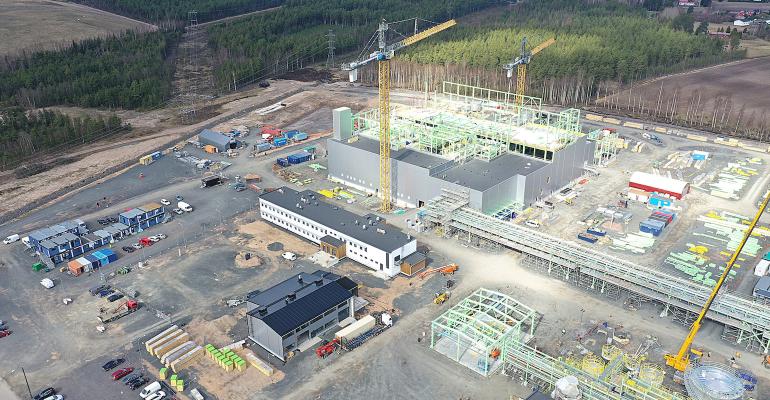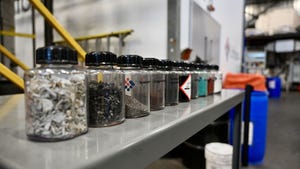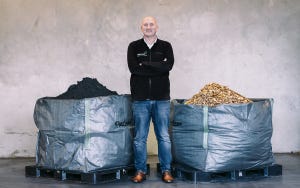Chemicals and materials manufacturers are making moves to support the growth of the electric vehicles market.

Production and adoption of electric vehicles is anticipated to expand dramatically over the next decade as the push for sustainability in transportation continues. In turn, demand for lithium-ion batteries, and the materials used to produce them, is increasing.
As the supply chain for battery materials develops, investment in cathode materials appears to have accelerated significantly in the past several years. Here are a few examples of prominent chemicals and advanced materials companies taking proactive steps to strengthen their foothold in the burgeoning market.
BASF
German chemicals and materials firm BASF intends to invest €3.5 billion to €4.5 billion (about $3.8 billion to $5 billion) between 2022 and 2030 to expand its production capabilities for precursor cathode active material (PCAM) and cathode active materials (CAM) across its global footprint. The company forecasts that fully electric and plug in hybrid vehicles will account for 30% of all cars manufactured around the world by the end of the period.
“There are four keys to the success of our battery materials future at BASF: expand our global operations footprint to serve our customers locally, advance technology, provide competitive offerings, and reduce our environmental impact,” Dr. Michael Baier, senior vice president, Battery Materials for BASF’s Catalysts division, said in a recent blog post on the firm’s future in the battery materials space.
The company currently operates seven manufacturing sites for CAM in the US, Finland, Germany, China, and Japan.
LG Chem
Petrochemicals and advanced materials manufacturer LG Chem committed around $418 million to construct a new production plant for battery cathode material in Gumi, South Korea, Reuters reported. Once operational, the facility will have a capacity of 60,000 tn/yr.
Battery materials has become one of LG Chem’s three primary businesses in recent years. In February, the company revealed plans to expand its production capacity for battery cathode materials at its production sites in Korea, the US, Europe, and China to 260,000 tn/yr by 2026.
POSCO Chemical and General Motors
American automaker General Motors (GM) and South Korean advanced materials firm POSCO Chemical selected Bécancour, QC for the location of a new $400 cathode active materials (CAM) production plant this month. The facility will be operated by a joint venture.
“GM and our supplier partners are creating a new, more secure and more sustainable ecosystem for EVs, built on a foundation of North American resources, technology, and manufacturing expertise,” Doug Parks, GM executive vice president, global product development, purchasing and supply chain, said in a March 7 announcement.
The investment comes as GM is working to increase its capacity to produce one million electric vehicles in North America by 2025.
Beyond the GM joint venture, POSCO Chemical is also currently building a 300,000-tn CAM and precursor plant in China. By 2030, the firm expects to produce 420,000 tn/yr of CAM across its footprint.
The Road Ahead
Powder & Bulk Solids expects to see investments in the battery cathodes materials space continue to grow over the next decade as demand rises and more electric vehicles come into use. The global cathode materials market is forecast to grow by a CAGR of 6.10% between 2022 and 2026, according to a recent report by Research and Markets, reaching a value of $22.8 billion by the end of the period.
About the Author(s)
You May Also Like





